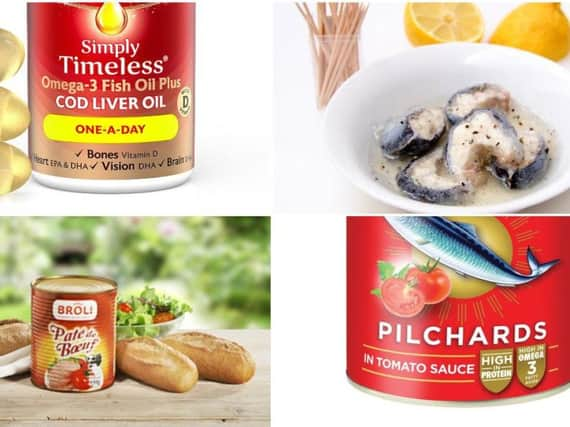10 foods full of Vitamin D that Yorkshire people think aren't trendy enough to eat any more


The trend for hipster food means young people are missing out on the vital nutrition as they shun food which are rich in Vitamin D like jellied eels, kippers and sardines because they aren't trendy enough.
The 10 foods we don't eat enough of any more
Ten foods containing Vitamin D we don’t eat anymore:
Jellied eels
Spam
Kippers
Sardines
Offal
Pilchards
Herring,
Beef liver,
Cod liver oil
Fish paste
That's according to research from corn flake makers Kellogs, who conducted the research, likely in a bid to push their Corn Flakes, which have added Vitamin D.
Advertisement
Hide AdAdvertisement
Hide AdThe firm says it is increasing the amount of Vitamin D in its flaked corn breakfast product to 50 percent of the recommended daily allowance.
In Yorkshire, 21% of people surveyed said they have never tried foods like spam, jellied eels, and sardines, and would never would because they sound disgusting.
· 27% said they’d tried offal, 16% had tried beef liver, and only 5% of had tried jellied eels.
· Only 30% of respondents in Yorkshire say they take vitamin D supplements.
Advertisement
Hide AdAdvertisement
Hide Ad· 37% rely on natural sunshine to get their vitamin D (yeah, good luck with that).
Dr Benjamin Jacobs, consultant paediatrician for the Royal National Orthopaedic Hospital, commented: “This research shows that most people living in the UK need to think harder about how they can get Vitamin D in their diet.
“In my clinic I still see children with a severe lack of Vitamin D being treated for medical problems that should have been prevented. Too little Vitamin D intake during growth can lead to severe conditions such as rickets, where the bones are too soft to support a growing child’s body weight. Vitamin D is also a key essential for a building a child’s immune system.
“Relying on sun exposure to build sufficient Vitamin D stores to carry children through the year is simply not a solution as they play indoors more; cover their skin and wear sunscreen. We advise children actively increase the daily intake of Vitamin D from foods and supplements if necessary.”
Advertisement
Hide AdAdvertisement
Hide AdOne in five people in the UK are deficient in Vitamin D3, putting themselves at risk of health outcomes associated with bones, muscles and cardiovascular problems.
Nearly three quarters (70 per cent) of over 60s have taken cod liver oil tablets, popular post war to combat Vitamin D deficiency. Interestingly, 81 per cent of those surveyed under 30 do not take any vitamin supplements believing they get what they need from their diet.
Speaking about the Kellogg’s Better Starts campaign, Laura Street, senior nutrition manager for Kellogg’s UK and Ireland, said: “Today everyone can be an online foodie, sharing what they eat on Instagram. Very few foods naturally contain Vitamin D and those that do aren’t that exciting or on trend so people are moving away from these in favour of more attractive meals.
“But, this does have health implications. When it comes to vitamin D we cannot get the levels we need from sunshine in the UK, so we have to look to diet. Even if you eat a diet considered to be healthy, it’s still difficult to consume the amount of Vitamin D needed, so fortified foods play a key role to helping to combat the nation’s vitamin D insufficiencies. This is why we have increased the Vitamin D levels in many of our cereals to 50 per cent of your daily needs.”